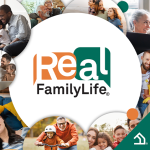
Finding Success in the Workplace
Chick-fil-A operator Josh Burnette and Young Life leader Pete Hardesty want young men to find success in the workplace. In order to see that happen, young men have to learn the value of hard work, punctuality, and responsibility. Burnette and Hardesty tell how they can get there.
Show Notes
About the Host
About the Guest
-
Chick-fil-A operator Josh Burnette and Young Life leader Pete Hardesty want young men to find success in the workplace. In order to see that happen, young men have to learn the value of hard work, punctuality, and responsibility. Burnette and Hardesty tell how they can get there.
-
Dave and Ann Wilson
Dave and Ann Wilson are hosts of FamilyLife Today®, FamilyLife’s nationally-syndicated radio program. Dave and Ann have been married for more than 38 years and have spent the last 33 teaching and mentoring couples and parents across the country. They have been featured speakers at FamilyLife’s Weekend to Remember® marriage getaway since 1993 and have also hosted their own marriage conferences across the country. Cofounders of Kensington Church—a national, multicampus church that hosts more than 14,000 visitors every weekend—the Wilsons are the creative force behind DVD teaching series Rock Your Marriage and The Survival Guide To Parenting, as well as authors of the recently released book Vertical Marriage (Zondervan, 2019). Dave is a graduate of the International School of Theology, where he received a Master of Divinity degree. A Ball State University Hall of Fame quarterback, Dave served the Detroit Lions as chaplain for 33 years. Ann attended the University of Kentucky. She has been active alongside Dave in ministry as a speaker, writer, small-group leader, and mentor to countless wives of professional athletes. The Wilsons live in the Detroit area. They have three grown sons, CJ, Austin, and Cody, three daughters-in-law, and a growing number of grandchildren.
-

Josh Burnette
Josh Burnette is a husband, dad, business owner, and author who currently resides in Little Rock, Arkansas. Originally from Virginia Beach, Virginia, he started working for Chick-fil-A as a team member when he was barely old enough to see over the counter. He received his bachelor’s degree in business management from James Madison University in 2009 (Go Dukes!). Throughout college, he served as a Young Life leader for a local high school, and his passion for mentoring young people began. A...more
Pete Hardesty
Pete Hardesty currently serves as the Young Life college divisional coordinator in the Eastern Division. He moved to the Washington, D.C. area from the friendly city of Harrisonburg, Virginia. Pete grew up in Baltimore, Maryland, and graduated from the University of Virginia where he was pre-med with the emphasis on “pre.” He then joined the staff of Young Life in Virginia Beach, where he served for seven years before moving to Harrisonburg in 2004. After being the area director for Young Li...more
Josh Burnette and Pete Hardesty want young men to find success in the workplace. In order to see that happen, young men have to learn the value of hard work, punctuality, and responsibility.
Finding Success in the Workplace
Bob: This is FamilyLife Today for Friday, March 22nd. Our hosts are Dave and Ann Wilson; I’m Bob Lepine. How do we, as parents, help make sure our children are ready to manage their money as they move into adulthood? We’ll talk with Pete Hardesty and Josh Burnette about that today. Stay with us.
And welcome to FamilyLife Today. Thanks for joining us. One of the things that, Dave, you like to talk to men about is the need for them to step up to be men. You’re really talking to them about what we’ve been talking about this week, which is taking responsibility for their actions and their lives—not being passive—but owning what they need to be responsible for.
Dave: Yes, going from boyhood to manhood—I think it’s a huge leap—it always has been; but in our culture, it’s like, “What is a man?” It could be said: “What is a woman?” “When does that happen?—when do you become an adult?” This book really does help define that for men and women: “What does an adult man/woman look like?”
Bob: The book you’re talking about is Adulting 101—the book we’ve been talking about, this week, by Josh Burnette and Pete Hardesty.
Guys, welcome back. Good to have you guys here.
Josh: Thank you.
Pete: Thanks for having us.
Bob: Josh and Pete come at this subject from two different perspectives. Josh is a Chick-fil-A® owner/operator, working with a lot of employees who are in that adulting stage of life—high school/college-age kids and young adults. Pete has been involved with the ministry of Young Life®, which—by the way, I shared with you—my wife came to faith through Young Life. I was a volunteer leader for six years. We have great respect for the work that Young Life is doing and are grateful for the ministry you have on high school campuses and with college kids.
You talk about this being something, Dave, that both men and women have to deal with. I was just curious, Ann: “Do women need to step up too?” I mean, I don’t hear that kind of a rally cry and charge given to women the way I hear it often given to men.
Ann: Well, I think it’s a little different for women. I think the difference is that women struggle with control, probably, more than men do. I was listening to you guys, as we’ve been talking about this, this week. I’ve realized that—as a mother or as Mom and my perspective—I struggle more with giving up the control of my kids as they become adults. I can see myself stepping in to say, “Hey, do you need me to write your resume?” [Laughter] I think moms can struggle with that piece more than the stepping up piece. It’s almost like, maybe, we need to step back.
Bob: Yes; so let’s dive into, really, what’s at the heart of adulting. As we’ve been talking about this week—is the whole idea of taking responsibility for your life/owning responsibility. What we see in the culture a lot today is people who, when something goes wrong, their first impulse is to look somewhere else and find: “The reason it went wrong is because somebody did this,” or “…because I didn’t have this advantage,” or to start to find blame outside of themselves.
You guys are saying a big part of adulting is to say, “I’ve got to own, at least, my part of the fails that I experience in life”; right?
Josh: Absolutely. The genesis of this book really came about because of the erosion of learning how to adult well in the home. As I witnessed that as an employer—and then, not really receiving these same life skills at school—a lot of young people are looking to their employer to help mature and turn them into an adult.
I was having these conversations that I had with my father; but now, as an employer. As these conversations were happening more and more frequently around purchasing a vehicle, or moving out, or time-management, that is what propelled this to come into being.
Pete: One of my friends, who is a young person, said this quote: “Being an adult is exactly like a birthday party; except, when the piñata breaks open, it’s full of bills and big scary decisions. [Laughter] It’s trouble.” Another one said: “I’m really glad I learned about parallelograms instead of how to do taxes. It’s really come in handy this parallelogram season.” [Laughter]
So, I think there’s blame to go around and how our society and culture has changed. You know, I think that there are a lot of places to look; but I do think what we talked about earlier is that childish ways are a focus on yourself—focus on self/being selfish. Then, when you grow up to be an adult, you start to be others-centered. When you start to really grow and learn—I think to serve others could be the most important part of learning how to adult.
Bob: Yes; yes.
Pete: I remember that one of the big lessons I learned—and I was so grateful to one of my mentors, named Bill—around time-management and around self-importance was—we would meet any time. This was when I was in college. It was on a Thanksgiving or Christmas break; and we met at the mall, where he would be walking. He was in his 70’s at that time. He would go walk for a couple miles, and then we’d join—meet for lunch.
I was 20 minutes late, and I rushed in—maybe, even 25. I sat down. He just looked me in the eyes; and he said, “Pete, are you late a lot?” I said, “Yes; I am.” He said, “You know what you are saying to people when you are late?” I thought, “Uh-oh.” I said: “I’m really busy. I’ve got a lot of stuff to do.” He said, “No.” Then, his voice got raised up a lot louder. I had never heard this from my mentor, Bill. He said, “What you’re saying,”—he stood up and said [fast talking and raised voice]—“’Whatever you’ve got to do is more important than whatever I’ve got to do. You’re saying you are more important than me.’” I remember looking around, and everybody is looking at us.
Ann: Wow.
Pete: I thought, “Oh my gosh!” Then, he just sat back down and said, “So, how has college been? [Laughter] How’s the first semester of your sophomore year?”
I’ll never forget that, because it made me realize that time-management is actually a piece of how we treat other people. It’s not just getting our stuff together; it’s not just “You’re disorganized,”—it’s a priority. You either have a priority for yourself and getting done or you’re not making others a priority to whatever you are going to. That’s just one aspect we cover.
We have a couple of chapters on time-management in the book as far as how to maximize our time/how to get the most out of every day; because time is the one thing that all of us have the same amount of, and I think God will want us to do the right things with our time.
Bob: I remember, when our kids were in high school, some of our kids were better at this than others; but we had some—who would look at a deadline for a school project or a paper; and they knew, if they turned it in late, they would lose a letter grade—they would make the value choice of: “I would rather have the time and procrastinate and lose the letter grade than to get this in on time.” As a parent, it’s driving you crazy. And most of the time, they knew, “If I turn this in on time, I’m good enough in this class, I can get an ‘A’ on that paper.”
Ann: How did you respond to that?—and Mary Ann?
Bob: Yes; so we talked to them about value and priorities and about the fact that, in real life, sometimes, it’s not the difference between whether you get an “A” or a “B.” It’s the difference between whether you succeed or fail. That’s why being on time was more of a priority than they were making it; they didn’t listen to that. [Laughter] I mean, there was nothing that we said that they would: “Oh, man, you know, Mom/Dad, you are really right. I need to be more…”
Here is the other thing I remember. We had one child, who would set his alarm to get up in the morning. No matter how loud he set it, he could sleep right through that alarm. There was this regular practice of coming down at 8:30; school started at 8:15. He comes down at 8:30 and said, “I never heard the alarm.” Then, you are faced with that dilemma: “What do you do, as a parent? Do you take them late? Do you say, ‘Walk to school’? Do you say, ‘You stay home today’?” I’m thinking, “He’s going to be in college next year, and there’s nobody around to handle this for him.”
These are the kinds of time-management/personal responsibility issues that kids have to confront, at some point, and go, “If I’m going to be an adult, I have to take ownership of this.”
Dave: Yes; here’s a question I have, Pete. When you were sharing that story—I mean, Bob’s the parent, speaking to this—and we’re doing the same thing—you had a guy raise his voice and tell you what it meant when you’re late. So, talk to the person, who is that guy. When do we make the decision, “I’m going to speak truth, hard, to help them become an adult; because they need to hear it”? It changed your life. I mean, it was like—maybe, your parents had said it to you before; but that guy, that day, was a turning point.
I want to be that guy in somebody else’s life. I don’t think that’s my gift to the world. I’m supposed to speak the truth to everybody; but every once in a while, it’s like: “Man, should I say this to Pete? I don’t know,”—I’m wrestling with it. Yet, he had the courage to say it; and it changed your life. You’re writing a book that has some of those truths in it, because one man spoke that to you. So, talk to a person about: “How do I make this decision as to whether I speak truth or I just keep it to myself?”
Pete: Dave, that—you bring up a great point. For us to speak truth to people, I think we have to have earned the right.
Dave: Yes.
Pete: He did. He met with me pretty regularly for years before he chose to exercise that right to speak to me in that way and have it be that memorable. The other thing, I think, is people really need to know that we have their best interests in mind; so I knew that—I knew that about him. It doesn’t mean that I accept everything; sometimes, that’s hard, especially for family.
The other thing—I think if you’re a young person, you need to be looking for mentors. You might have the best mom and dad in the world; but we need a—studies have shown—we need a constellation of mentors. If we put all our eggs in one basket—a man or a woman—they’re imperfect, because everybody is imperfect; they are going to let us down in some ways.
And not everybody is—to have a constellation of mentors, everybody brings something to the table. I have something to learn from everybody, and I feel like I bring something that might be of value to everyone. I think, looking outside of the home—and you might—a lot of times, if you are blessed with a great mom or dad, that main mentor can be in the home, which is great; but even outside of that, every mom and dad is imperfect. So, I think—if you’re a mom or dad—to encourage your children to have mentors that are besides you. They can learn all kinds of different things from them.
Ann: Dave and I did that with our own kids—in terms of we prayed for those mentors. We were always amazed that we would say these things to try to equip our sons and: “This is what you should do…” / “This is a great idea…” and they’d kind of blow it off; but then, some man came into their life and said the same thing—like, “This is amazing.” Dave and I are like, “We been saying that for years!” [Laughter]
Yet, we prayed so diligently that God would bring men into their lives; and God was faithful to do that. I believe that was one of the big changing points for each one of our sons—is the men who poured into them.
Bob: One of the things that you talk about in your book, Adulting 101, is taking responsibility for employment/getting a job. Now, a lot of high school kids today—their life is already over-crowded. Do you think it’s smart for parents to clear out some things so that the kids work during their high school years?—or is that something that is just going to be an unnecessary distraction? I’m talking to a Chick-fil-A owner/operator. I think I know what your answer is going to be; right? [Laughter]
Josh: Yes; absolutely. I started working when I was 14 to an employer, which was Chick-fil-A as well. What I learned in the workplace was so invaluable from, again, an interpersonal relationship skill set. That what they have an opportunity to learn—and they don’t need to work 40 hours a week to glean those skills, especially, as a young adult—but having somebody else, outside of the family, that they are responsible to and beginning to learn those building blocks, while they are still in high school, produces tremendous results in college and beyond.
Bob: Did that mean you couldn’t play soccer, or you couldn’t be in the school play, or whatever?
Josh: There are different seasons of time. There was still an opportunity to be engaged in sports and engaged in school; but also, I could still work on the weekends; or maybe, I could work one or two nights a week. So, again, it wasn’t a full-time employment; but I had the opportunity to still learn from my time at Chick-fil-A.
Dave: It’s crazy to think—because I’ve talked to so many parents that—like Bob just said: “I don’t want my son or daughter to miss the school play,” or “…the sports team. So, I’m going to give them an allowance. I’m going to give them money, so they can live.” I think that’s the wrong perspective—I really do—because it’s like: “Oh my gosh. Life is about learning to be an adult.”
That’s what your book does—I got your book and read it. I thought: “Oh my gosh. Every parent should be handing this book to somebody to help their child, because this stuff…” I learned stuff about being an adult in your book. [Laughter] I didn’t know what life insurance was about; I didn’t know how to invest. I mean, it’s so practical: “Get a job,” “How to do car payments,”—all that stuff.
I’m like: “I failed, as a parent. I didn’t teach many of those things.” Yet, here it is, as a tool to hand to a parent or anybody and say, “Here you go. You want something to walk somebody through?—here it is.” They are going to eat it up.
Bob: Pete, one of the other areas that you talk about, as you help kids get ready for adulthood/learn how to adult, is how to manage money. This is something—I remember a call from one of our kids, at college, who had apparently figured out a way, in spite of my knowing about it, to get a credit card and had figured out a way to charge something—a lot of somethings—on that credit card without me knowing about it. All of a sudden, this child was in trouble with that credit card.
Ann: Ooh; I would have liked to have heard that conversation. [Laughter]
Bob: And that was—it was quite a conversation; but it was a part of that child’s adulting experience to say: “We’re going to sit down and figure out—now, here’s the hole you got yourself into. How’s this hole feel? Is this a hole you’d like to be in very often? Now, I’ll help you figure out, ‘How do we dig out of the hole?’” I did not want the 18 percent interest that was attached to that credit card any more than the child wanted it, but I also didn’t want to just solve the problem for the child.
That’s where I think a lot of parents make a mistake—is not letting their kids experience some of the consequences of poor money choices or poor time choices. You don’t let them feel what it’s like to lack responsibility—you cover that up for them—and they never feel the sting of a bad choice.
Pete: That’s actually the biggest topic in the book; I think we have four chapters on it. One of the big principles it starts with is: “Money won’t make you happy, but mismanagement of money will make you miserable.” It’s not like that’s the secret sauce that—if we get enough money, we’ll be really happy—but if you don’t take care of it / if you don’t learn some good habits around money, it can be disastrous. It can really affect your quality of life for going on.
The other big principle that our chapters are written from is that: “All the money in the world is God’s. Every dollar in everybody’s pocket—every peso, every yen, every shekel—is all God’s; so all we’re doing is being stewards of it.” So, the question is: “How are you going to steward this money?” It comes back to “Naked we come; naked we go.”
I’ve been to a lot of funerals. I’ve never seen one, where there is a lot of money—like, in the coffin—stuffed around somebody laying there. You know, everybody leaves the same amount of money behind when they die—all of it—so how are you going to take care of it while you are here?
Bob: I heard a pastor one time say, “When it comes to the issue of giving, the question is not: ‘How much of my money am I going to give to God’s work?’ It is: ‘How much of God’s money am I going to keep for myself?’”
Dave: Yes.
Bob: When you reposition the question that way, all of a sudden, it does change your perspective and go: “Oh, yes; this money is God’s money. Now, the question is: ‘How much do I spend on myself, and how much do I spend on other things that matter to me, like advancing the Kingdom?’”—which really brings us to where you guys wrap up the book.
You wrap up the book with what is the ultimate issue as children move from childhood to adulthood. They can master every part of this book; but if they get this last part wrong, there is a problem; isn’t there?
Pete: Yes, Bob; the book is about how to succeed in life. It’s written from a perspective that there are certain realities in our life that God has set up in our world; so for example, one of them is: “You reap what you sow,”—that’s not just agriculturally; that’s, also, financially; it’s, also, relationally. There are a lot of things that are set up, in reality, that the more we learn and live into that, the better our lives get—the better we get at life, and the better our lives will be.
But we can do a lot things right and miss the big picture. Josh and I went, back and forth; and we thought about this and talked about it a lot. We thought, “We don’t want to write a success manual for life and leave out the biggest part; because people will be missing out on true, full life.” Jesus is that great, and following Him is what we were made to do.
So, really, this book can work for any young person, no matter what their—you know, wherever they are in their spiritual journey, and no matter what they think about God, Jesus, faith—because at the very end, we kind of give a very winsome view of who Jesus is and what He has—the reason He came and what He has to offer in this life.
But there is no real other mention of the Bible—even though it all comes from God’s truth and every—you could almost retitle each chapter, you know: “A Christian Ethic on Finances”; “A Christian Ethic on Sex and Dating”; “A Christian Ethic on Professionalism.” But we wanted it to be relevant for every single person, no matter what they thought, and so to come at it with an open mind.
Dave: Yes; I loved how you did that. As I read through the book, I’m thinking, as a parent—even as an older adult; I won’t give my age, trying to still be an adult—I’m like: “Man! Oh, man! This is incredibly wise counsel that nobody gets on practical life skills; and yet, anybody could read it.” An atheist could read it and get incredible wisdom from it. Then, at the very end, it is almost like you go: “If you want to know where this came from, watch this. This is all from the most popular, best-selling book every written called the Bible.”
Ann and I speak at corporations, sometimes, about marriage and relationships. They tell us, “You can’t mention Jesus.” People come up afterwards and go, “Where did you get that stuff?!” We’re like, “Well, it’s in the Bible.” They’re like: “What?! You’ve got to be kidding me.” So, it’s the same thing here—it’s like: “That’s”—this whole book, like you said, could be a biblical treatise on success; yet, you did it in such a compelling way. Really, the way you did at the end of the chapter—way to go! A parent could hand this to a son, who says: “I want nothing to do with church. I want nothing to do with God.” They’d still get a ton out of this book; and at the end, they’d be drawn to go, “Hmm, maybe, I should know the Author of all these great truths.” Good job.
Bob: I would think, if you had a high school junior or senior, as a mom or a dad, to start going, chapter by chapter, through this book with them—
Dave: Yes.
Ann: I love that idea.
Bob: —great preparation. If you’ve got a son or a daughter, who is in college—to just give them this as a gift; but I’d give it to them as a gift and say, “I’ll pay you $100 if I get a book report on this after you’ve read it.”
Ann: Would you do that?
Bob: I would—not for your kid—[Laughter]—but I would do it for mine—give $100. Yes; I paid my kids to read books—
Ann: Yes.
Bob: —but only when I get a book report, explaining “What are the most important things they got out of the book?”
Or if you know somebody, who is starting life, out of college and in the workforce, this is a great graduation gift.
Dave: Yes.
Bob: We’ve got copies of the book, Adulting 101, in our FamilyLife Today Resource Center. You can order it from us, online, at FamilyLifeToday.com; or call to order: 1-800-FL-TODAY is the number. Again, the website: FamilyLifeToday.com; or get in touch with us by phone at 1-800-FL-TODAY—that’s 1-800-358-6329. Ask for your copy of the book, Adulting 101; and we’ll get it out to you.
Now, we want to also ask you to be in prayer this weekend for couples in Cleveland, Ohio; in Lincoln, Nebraska; and in the Poconos in Pennsylvania. We’ve got three Weekend to Remember® marriage getaways taking place this weekend—hundreds of couples, who will be with us for the weekend, learning about God’s design for marriage. Pray for those couples, if you would.
And thanks to those of you who help make all that we do at FamilyLife® possible—not only this radio program—but these events, our website, the resources we’re creating. You make that possible when you donate to support the ongoing work of FamilyLife Today. We are grateful for your partnership.
If you are a regular listener—you’ve never donated—we’d love to have you join the team. You can donate, online, at FamilyLifeToday.com; or call to donate at 1-800-358-6329. We’re grateful that you’d even consider doing that and hope to hear from you.
Now, as we wrap this week up—and particularly this conversation about transitioning into adulthood and Adulting 101—we’ve got the President of FamilyLife, David Robbins, joining us again. Hey, David.
David: Hey, Bob; today’s conversation reminds me of my first job in high school. It was in the service department of a car dealership. I knew nothing about cars whatsoever; but I would greet the people bringing their cars in and try to interpret the noises they were making—that their cars were making—onto a sheet of paper in order to pass on to the mechanic. It was a real job. The alarm clock was set at six a.m. throughout the entire summer. There was no air-conditioning in the middle of Mississippi heat.
I clearly remember the day when I was moving cars on the lot, and I wrecked my Algebra teacher’s Cadillac, 15 minutes after it had been fixed up and released from the body shop.
Bob: Oh my goodness! [Laughter]
David: Yes; it was a day I learned how much growth can take place when we experience grace and truth at the same time. There were, indeed, some consequences to what happened; there was a cost to what happened; but it was combined with the kindness from my boss and, actually, also from my math teacher’s husband, which was kind of surprising—I was scared of him.
When we were working with 20-somethings before we came to FamilyLife, one of the things we discovered was a consistent growth area for young adults today was the ability to carry tension in life and encounter grace and truth at the same time—to not go all bad or all good on yourself, or on someone else, or a situation. When I think about investing in the next generation, I think, often, we need to make sure we’re not rescuing our kids and grandkids out of pain; but at the same time, we’re lavishing grace on them in their time of need.
Bob: Yes; that’s good. Thank you.
Well, we hope you have a great weekend. I hope you and your family are able to worship together in your local church this weekend, and I hope you can join us back on Monday when Drew Hill is going to be here to talk about how important it is for, both, moms and dads—but particularly for dads—to be present as your kids are growing up. The power of presence—we’ll talk about that Monday. I hope you can be with us.
I want to thank our engineer today, Keith Lynch, along with our entire broadcast production team. On behalf of our hosts, Dave and Ann Wilson, I’m Bob Lepine. We will see you Monday for another edition of FamilyLife Today.
FamilyLife Today is a production of FamilyLife of Little Rock, Arkansas; a Cru® Ministry. Help for today. Hope for tomorrow.
We are so happy to provide these transcripts to you. However, there is a cost to produce them for our website. If you’ve benefited from the broadcast transcripts, would you consider donating today to help defray the costs?
Copyright © 2019 FamilyLife. All rights reserved.



